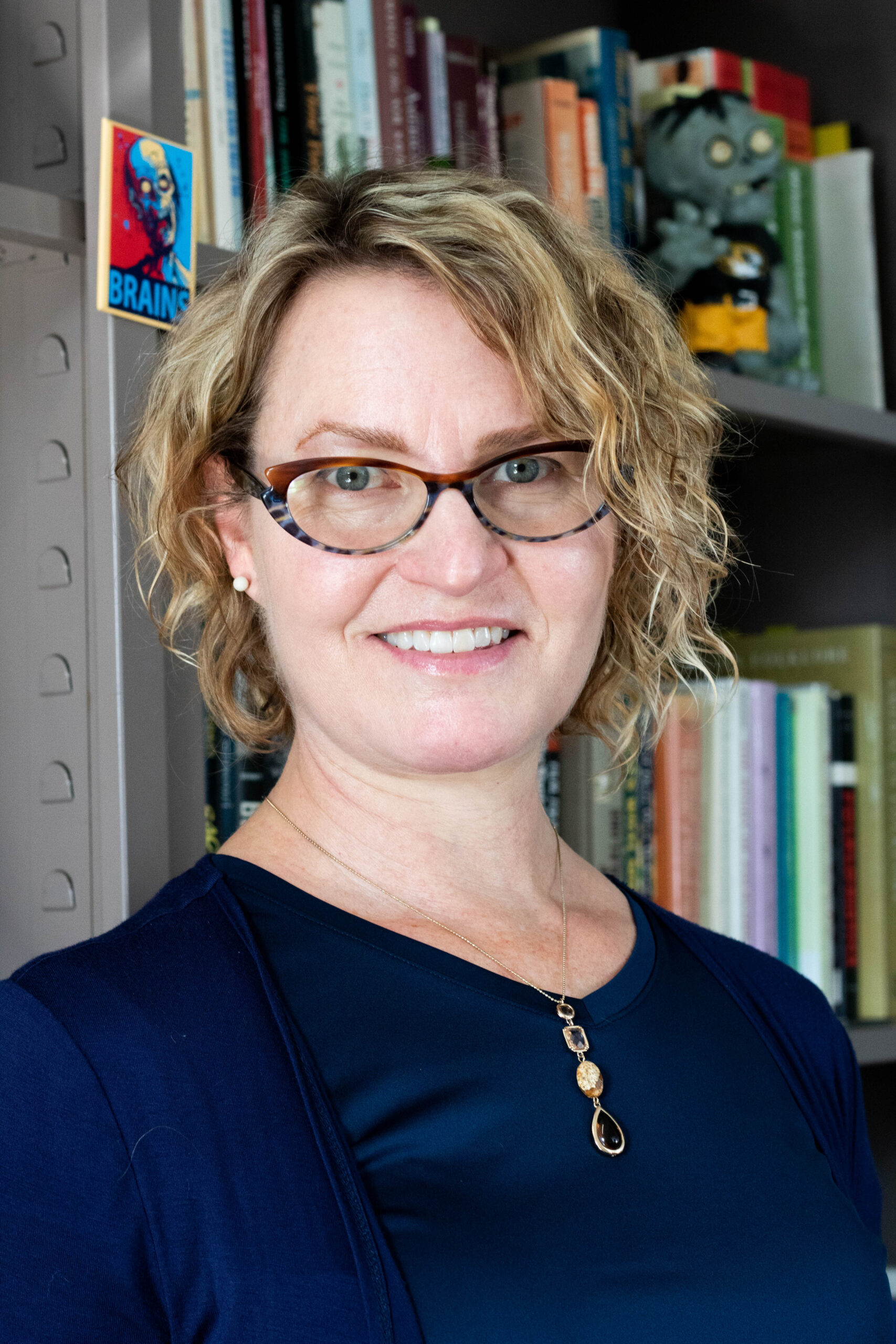Writing and rhetoric professor studies death, food
LuAnne Roth’s research focuses on zombies, death and food. PHOTO CREDIT: Melissa Marchese
LuAnne Roth, a senior lecturer of writing and rhetoric at the University of Rhode Island, has made a career out of folklore, dedicating her time to researching death and food and teaching what she knows, one class at a time.
“It seems like a really interesting way to understand what makes people tick,” Roth said. “Instead of in psychology, asking them questions like a therapist might, folklorists ask people questions about their traditions and the things that are important to them culturally, and then draws meaning from that.”
Prior to coming to URI, a lot of this work related to zombies. In graduate school, Roth came across conversations about zombies and race and zombies as an allegory for racism and colonialism while studying for her comprehensive exams.
Before she knew it, she was teaching a class on zombie folklore and running a university-wide zombie conference at the University of Missouri.
“I like [zombies] because they seem to be just folly, or fear,” she said. “But underneath there’s a lot of history and meaning, and in each generation, each decade, zombies sort of take on whatever meanings that generation needs them to take on. And if we look at them, we can sort of see reflections of ourselves.”
She explained that zombies in the 1930s and 1940s were created by mad scientists and Nazis, in the 1950s and 1960s they were supposedly from radiation from outer space and in recent history, after 9/11, zombies have gotten faster and have emerged from fears of terrorism and experimentation gone wrong.
In 2021, the age of COVID-19, some aspects within zombie films are coming to life in real-time, according to Roth.
“You lose family members, you can’t tell oftentimes who’s sick or not — those were the things, those were the fears,” she said. “The pandemic is what happens in zombie films on a regular basis.”
Since coming to URI, Roth has been working on projects related to food, film and killer clowns. Roth said that all of her research has something to do with death or food in some way.
She’s currently finishing up a film analysis that compares the way meat is treated in “Departures” and “The Green Butchers.”
“My argument, in a nutshell, is that the meat scenes, and the way meat functions like almost as a character itself within the story, is a way of thinking about death and dying and mortality,” she said.
She’s also working on research about the 2016 ‘creepy clown’ phenomenon, drawing a line between the mass hysteria of the clown sightings and mass shootings. Roth said that while she is not afraid of clowns herself, the phenomenon was a big deal.
“My argument that I’m working on is that it is more comforting to imagine that you can see somebody wearing a clown mask and spot the danger than to accept the reality that, you know, you could walk in with an assault rifle under your coat and you look like a peaceful, normal person,” she said. “It’s more comforting to be like, ‘There’s the danger. That one right there wearing a mask.’”
Senior Michaela Sullivan has taken many classes with Roth, including HPR 347: Honors Seminar in Humanities and Writing which focused on the folklore of death and dying, WRT 305: Travel Writing and WRT 404: Writing with Community Partners, where she worked with the North Kingstown Food Pantry to write donor letters, help with social media and get involved with the community.
Sullivan said that she has felt supported by Roth as a professor in all of her classes.
“I can tell that she genuinely cares about her students and wants them to be successful,” she said. “I had a few medical things come up and she was very accommodating. She saw that I was still putting an effort [in] and she was more than willing to work with me.”
Genoa Shepley, the chair of the writing and rhetoric department, described Roth as a “gem.”
“She has the full package of really compelling research and great teaching abilities, excellent teaching abilities, and she’s a wonderful colleague,” she said. “We’re very lucky to have her.”





